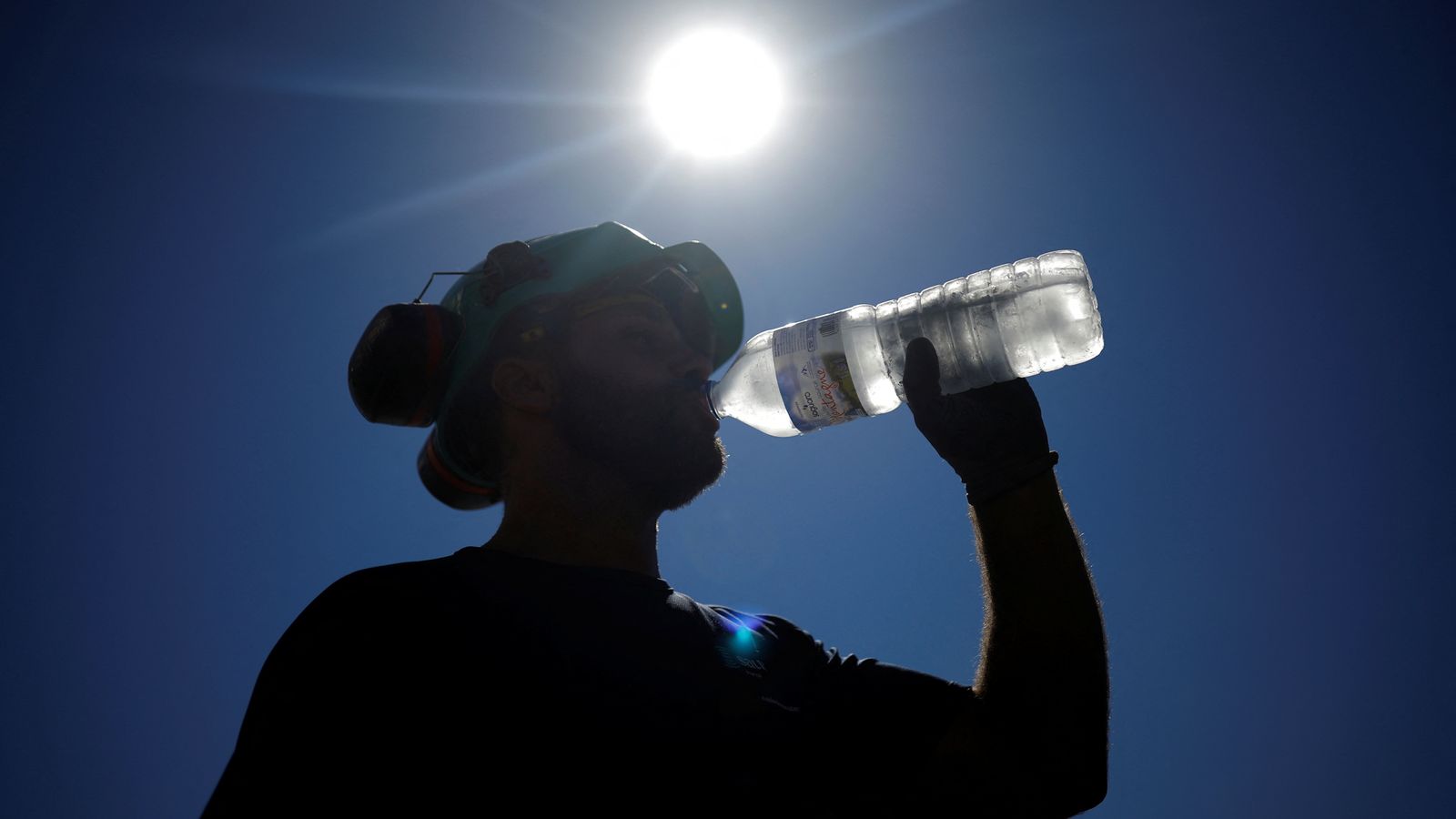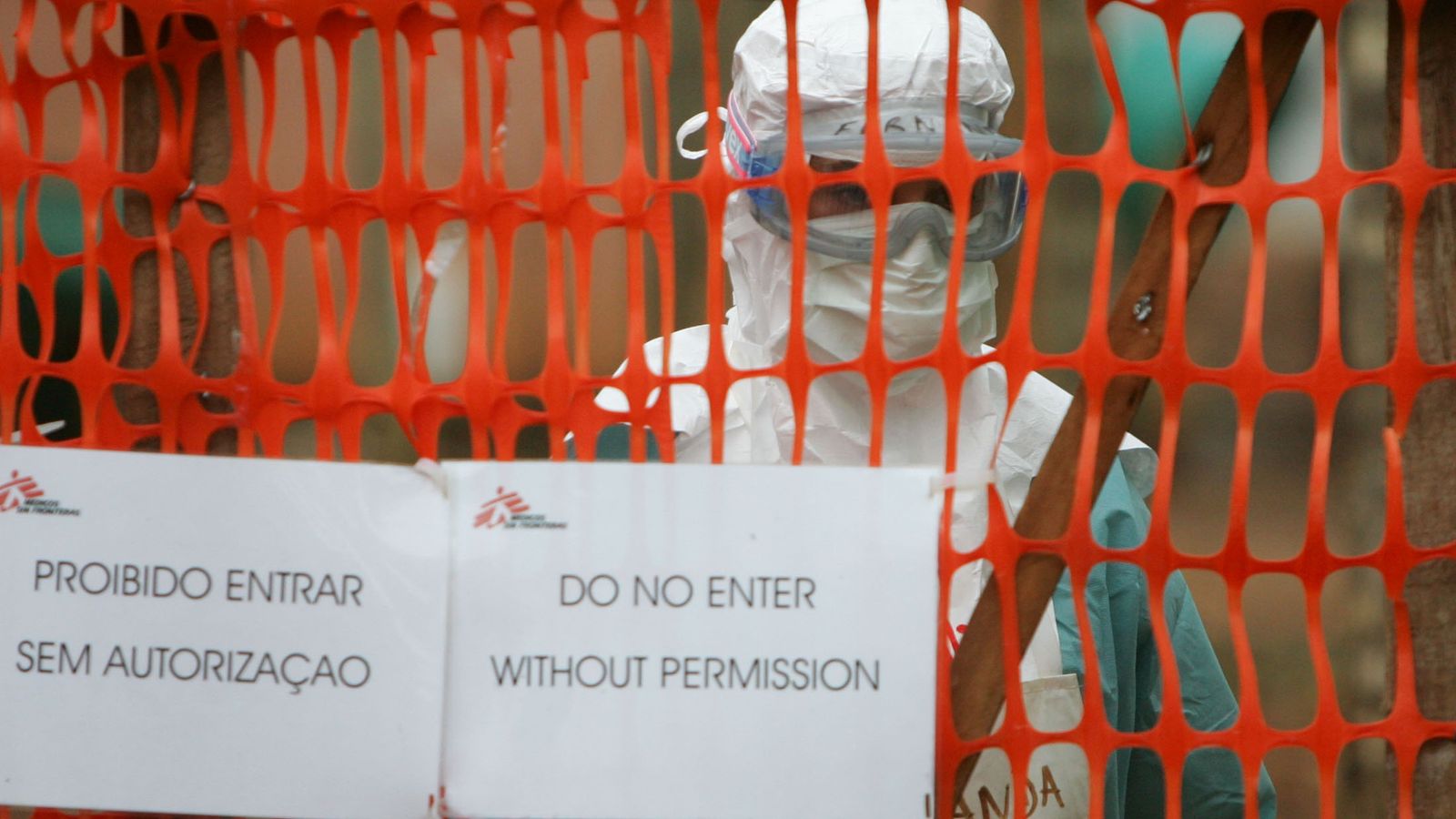Intervention to prevent heat exhaustion and heatstroke can be “lifesaving” as people are urged to look out for the danger signs.
The NHS says heat exhaustion is “not usually serious if you cool down within 30 minutes” – but warns it needs to be treated as an emergency if it turns into heatstroke.
England’s chief medical officer, Professor Sir Chris Whitty, has asked people to look out for each other, adding: “Please remember the signs of heat exhaustion and heatstroke especially for older and medically vulnerable people.
“Early intervention to cool people down and rehydrate them can be lifesaving.”
Heatwave latest – ‘stay indoors warning’ as temperatures soar
People with long-term health issues, including diabetes and heart problems, are said to be most at risk in the hot conditions.
So what are the things to look out for to identify heat exhaustion and heatstroke?
Heat exhaustion signs include:
• Headache
• Dizziness and confusion
• Loss of appetite
• Feeling sick
• Excessive sweating and pale, clammy skin
• Cramps in the arms, legs and stomach
• Fast breathing or higher pulse rate
• High temperature of 38C or above
• Being very thirsty
Symptoms are mostly the same in adults and children – but youngsters may also become floppy and sleepy.
The NHS says people should dial 999 if there are signs of heatstroke.
Evidence of heatstroke can include:
• Shortness of breath or faster breathing
• A fit/seizure
• Loss of consciousness
• Someone is unresponsive
If people are showing signs of heat exhaustion, they should follow these NHS guidelines to try to prevent the onset of heatstroke:
• Move to a cool place
• Lie down and raise feet slightly
• Drink plenty of water – sports or hydration drinks are fine
• Cool down the skin – use a cool water spray or sponge
• Use cold packs around the armpits or neck
Read more:
Top tips to stay cool
Find out the latest forecast for your area
Why climate change will make this heatwave more dangerous
Please use Chrome browser for a more accessible video player
If someone still feels unwell after 30 minutes of resting in a cool place and drinking plenty of water, they are showing signs of heatstroke and can contact 111.
Other indicators include not sweating despite feeling hot, feeling confused and having a high temperature of 40C.
How can you avoid becoming unwell from the heat?
There are steps people can take to make sure they are safe during a heatwave.
These include drinking plenty of cold drinks, taking cool baths or showers, wearing light-coloured and loose clothing, avoiding the sun between 11am and 3pm, avoiding excess alcohol and not doing extreme exercise.
Doctors have also given other advice and tips to help remain healthy during the heatwave.
These include to not consume too many products with caffeine as “they can actually make you lose more fluid”.
People can also monitor the colour of their urine to “make sure it’s nice and pale – that’s a good sign you’re staying hydrated enough”.
People should make sure they have sun cream on if they do venture outside – while if you are inside it is “actually better” to have the windows, doors and curtains closed while the sun is beating into the house because “if you have everything open you’ll be letting hot air in”.
Neighbours are being urged to keep an eye on vulnerable people – while people needing medications should ensure the drugs are being stored away from high temperatures in accordance with guidelines.
Parents and carers have also been warned about ensuring children who want to be “outside playing” have plenty to drink and are wearing sun cream.











